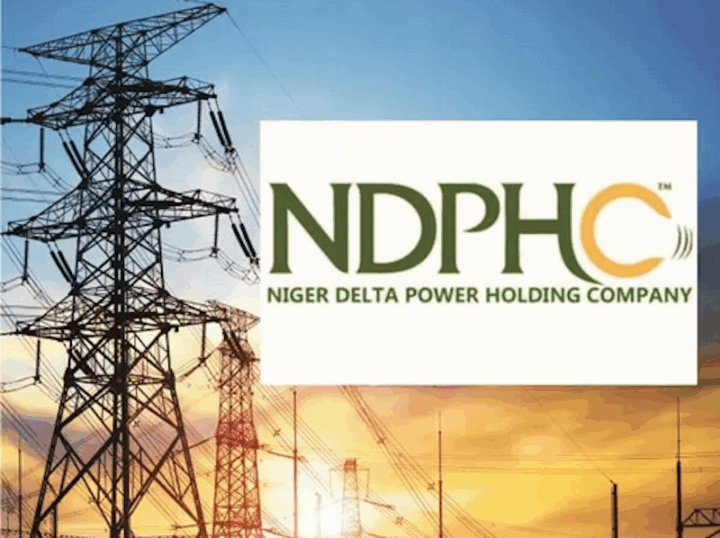The Niger Delta Power Holding Company (NDPHC) has signed new Power Purchase Agreements (PPAs) amounting to approximately 500 megawatts, a move that the company says will strengthen its revenue base and enhance utilization of its generation assets. These agreements, currently awaiting regulatory approval, are part of the company’s broader strategy to turn around its operations and resolve lingering liquidity challenges.
Jennifer Adighije, Managing Director and Chief Executive Officer of NDPHC, disclosed this development during an industry conference in Lagos, where she affirmed that the company’s leadership is now focusing on both transmission upgrades and strategic commercial partnerships. She noted that with easing liquidity constraints, NDPHC is now better positioned to reinvest in transmission infrastructure to ensure that its generation capacity is effectively dispatched across the grid.

Adighije described the PPAs as critical to unlocking stranded generation capacities that had long underperformed or remained idle. With these deals, she said, NDPHC expects to move more of its generation assets into active service and capture revenue that was previously lost to inefficiencies and market defaults.
“Once regulatory approval is secured, these agreements should significantly boost our operations and revenue base,” she said. Adighije further affirmed that NDPHC’s ongoing projects will help reinforce Nigeria’s transmission backbone and help match generation capacity—some of which now exceeds the grid’s ability to evacuate power—with downstream demand.
She highlighted the Agbara Industrial Cluster Project as a flagship initiative under this commercialisation drive, stating that it is already attracting strong interest from industrial customers. The project aims to connect factories directly to NDPHC’s power infrastructure, reducing dependency on distribution companies in some cases. Adighije confirmed that preliminary clearance to commence execution has been obtained, and several customers have expressed willingness to engage.
Beyond Agbara, she added, NDPHC is preparing to replicate similar cluster models in other regions including Kano, Challawa, and Dawanu, aiming to provide large consumers with reliable access to power under bilateral arrangements. These efforts align with the ongoing transition to bilateral electricity trading, which allows generators to sell power directly to creditworthy buyers.
Adighije also praised the Electricity Act 2023 for enabling greater flexibility in state-level involvement along the power value chain. She revealed that the company is open to forming strategic partnerships with states ready to play active roles in power development, citing Ondo State as a prospective collaborator through its State Electricity Bureau.
While the newly signed PPAs hold promise, the ultimate viability hinges on regulatory approval and the ability of NDPHC to ensure consistent generation, stable gas supply, and grid evacuation. Experts warn that execution risks—such as metering approval delays, weak downstream offtake, and payment defaults—could undermine the expected gains.
Indeed, NDPHC’s revival ambitions are not just new. In recent months, the company has embarked on a series of efforts to reactivate dormant turbines across its power plants. It has reported restoring about 625 megawatts from plants in Calabar, Omotosho, Sapele, and Ihovbor that previously lay idle or underutilised. By reviving these units and incrementally boosting mechanical availability, NDPHC aims to progressively close the gap between generation potential and market dispatch.
Still, challenges remain. The Alaoji power plant—expected to supply up to 500 MW—has seen progress stalled, with NDPHC citing pending metering and gas approvals as the causes for delay. Until these bottlenecks are cleared, some of the intended capacity may remain stranded.
To ensure that the 500 MW in signed PPAs can translate into actual electricity delivered, NDPHC must address interlinked constraints: securing firm gas supply, obtaining timely regulatory clearances, and coordinating with distribution companies that must take the power delivered. These steps, coupled with disciplined operations and transparent financial flows, will determine whether this agreement leads to sustainable impact or remains more aspirational.
In any event, the signing of these PPAs marks a decisive policy turn for NDPHC—from a largely incapacitated portfolio of assets toward a more commercially driven model. Should the agreements finalize and delivery begin, the move may well mark the beginning of a real structural turnaround in Nigeria’s power sector.
Support InfoStride News' Credible Journalism: Only credible journalism can guarantee a fair, accountable and transparent society, including democracy and government. It involves a lot of efforts and money. We need your support. Click here to Donate
